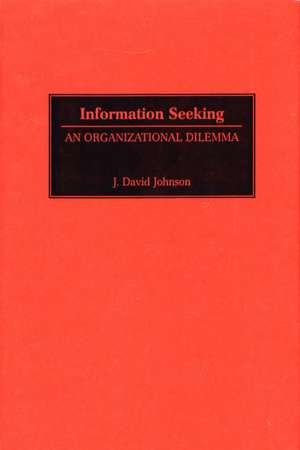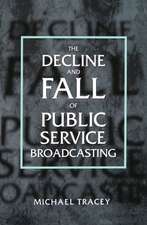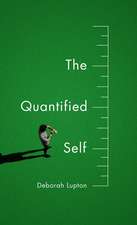Information Seeking: An Organizational Dilemma
Autor J. David Johnsonen Limba Engleză Hardback – 29 iun 1996 – vârsta până la 17 ani
Preț: 320.60 lei
Preț vechi: 391.56 lei
-18% Nou
Puncte Express: 481
Preț estimativ în valută:
61.35€ • 64.21$ • 51.06£
61.35€ • 64.21$ • 51.06£
Carte tipărită la comandă
Livrare economică 31 martie-14 aprilie
Preluare comenzi: 021 569.72.76
Specificații
ISBN-13: 9780899309996
ISBN-10: 0899309992
Pagini: 200
Dimensiuni: 156 x 235 x 13 mm
Greutate: 0.45 kg
Editura: Bloomsbury Publishing
Colecția Praeger
Locul publicării:New York, United States
ISBN-10: 0899309992
Pagini: 200
Dimensiuni: 156 x 235 x 13 mm
Greutate: 0.45 kg
Editura: Bloomsbury Publishing
Colecția Praeger
Locul publicării:New York, United States
Notă biografică
J. DAVID JOHNSON is Professor and Chairperson of the Department of Communication, Michigan State University. He is author of numerous articles and reviews in refereed journals on his research interests, which focus on organizational communication structure, information seeking, and health communication. Dr. Johnson is and has been a consulting editor for major journals in his fields and is author of a previous book, Organizational Communication Structure (1993).
Cuprins
PrefaceFigures and TablesIntroduction and OverviewHierarchies, Networks, and MarketsInformation FieldsInformation Carriers: A Focus on Channel Selection and UsageBarriers to Information Seeking or the Benefits of IgnoranceStrategies for Seekers (and Non-Seekers)Strategies for ManagementSumming Up: Information Seeking in the Information AgeBibliographyIndex














